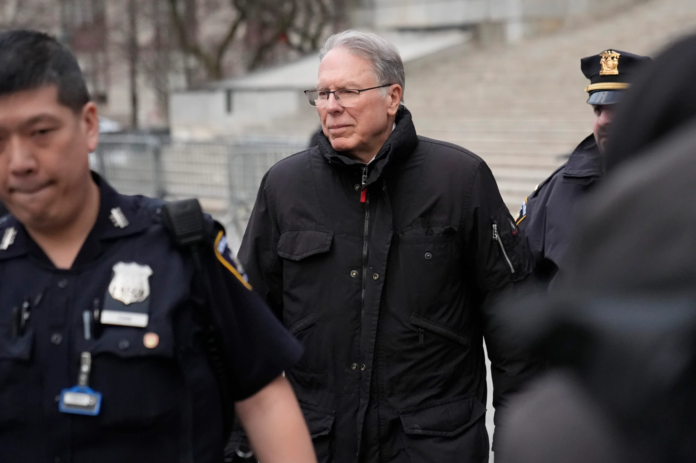The National Rifle Association (NRA) and its former linchpin, Wayne LaPierre, have been found liable in a high-profile civil corruption case spearheaded by Democratic New York Attorney General Letitia James. This pivotal moment marks a significant win for those advocating for transparency and accountability within one of America’s most influential gun lobbying groups.
The legal battle, initiated by James in 2020, sought to expose the deep-seated corruption and greed that had festered within the NRA’s ranks for years. Friday’s verdict did not disappoint, confirming suspicions of misuse and abuse of power at the highest levels of the organization. Wayne LaPierre, the NRA’s CEO for over three decades, who conveniently stepped down in January citing health reasons, was ordered to cough up $4.35 million of the $5.4 million he had siphoned for personal extravagances under the guise of charitable spending.
LaPierre’s opulent misuse of funds wasn’t limited to himself; lavish travel, private planes, costly attire, and an array of insider contracts also benefited his family and close associates, all at the expense of the NRA’s coffers. His resignation, timed suspiciously close to the trial’s commencement, suggested an attempt to evade the reckoning that awaited him and the organization he once led.
The case’s outcome did not solely rest on LaPierre’s shoulders. The jury also found NRA general counsel John Frazer liable, imposing a $2 million penalty for his involvement in the misconduct. Furthermore, former treasurer Wilson “Woody” Phillips was accused of failing his fiduciary duties, rounding out a trio of executives whose actions have tarnished the NRA’s reputation and mission.
Attorney General James’s relentless pursuit of justice in this case underscores a powerful message: In New York, and indeed across the country, no entity or individual is above the law, irrespective of their power or influence. The implications of this trial extend beyond financial restitution; James seeks to ban the implicated executives from holding leadership roles in any charity operating within the state, a decision pending judicial approval.
This verdict not only vindicates the tireless efforts of gun control advocates but also signals a turning point in the battle against corruption within powerful lobbying organizations. The NRA’s omission of critical information in tax filings and its failure to implement a whistleblower policy were among the damning findings that have led to this moment of accountability.
As the dust settles on this monumental case, the implications for the NRA and the broader gun lobby cannot be overstated. Nick Suplina of Everytown for Gun Safety aptly noted the waning influence of the gun lobby and the ascendant power of the gun safety movement. This trial, and its outcomes, mark a pivotal chapter in the ongoing struggle for a safer, more transparent, and accountable gun policy landscape in the United States.



